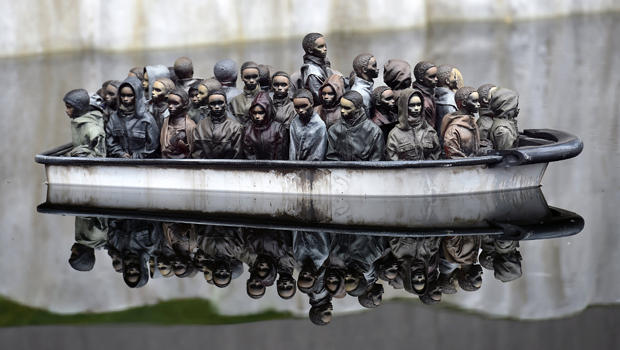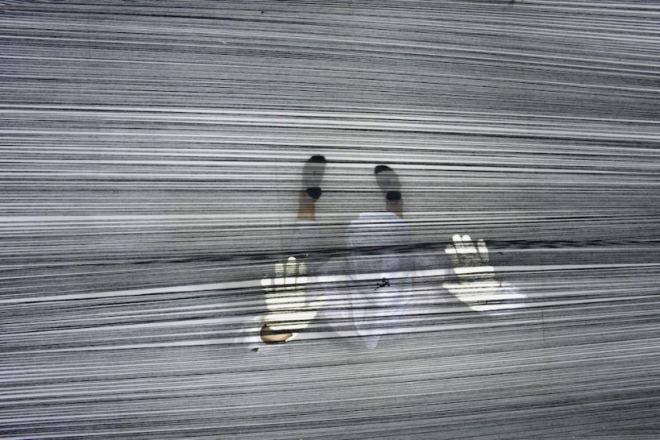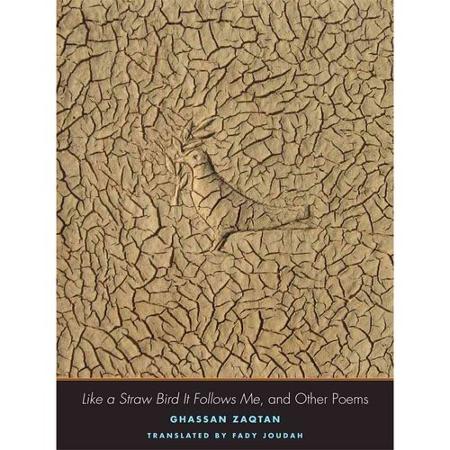 /photo: Shepard Fairey, Obey Middle East Mural/
/photo: Shepard Fairey, Obey Middle East Mural/
More than a century has passed since the famous strikes of female workers in the American textile industry. For more than a century, all around the world, International Women’s Day is celebrated on the 8th of March. A century later, inequality isn’t gone. To discuss the issues of inequality and representation in the Middle East, a region often in the spotlight for violation of women’s rights, we talk with female lawyers, poets, aid workers, directors and activists from the region – Jehan Bseiso, Hind Shoufani, Roula Baghdadi, Fatima Idriss and Nagwan El-Ashwal.
In the honor of International Women’s Day, in the name of continuity of the struggle, we’re in discussion with women from Syria, Lebanon, Jordan, Palestine and Egypt. We tackle the issues for women in general, and in the Middle East particularly. Western media usually doesn’t do justice to this topic and the mainstream discourse on Middle Eastern women is highly problematic. It’s not only about the stories written, it’s equally about the imagery that follows them – in some cases the photographs chosen to accompany the news about Middle Eastern women are less than representational of the story at hand. Let’s change that. The struggle continues, but solidarity continues too!
Jehan Bseiso: Between victims and superheros – too much of a burden
Bseiso is a Palestinian poet, researcher and aid worker. Her poetry has been published in Warscapes, The Funambulist, The Electronic Intifada, and Mada Masr among others. Her book I Remember My Name (2016) is the creative category winner of the Palestine Book Awards. Bseiso is co-editing Making Mirrors a new anthology by, for and about refugees. She is also working on a collection of poems: Conversations Continued, a compilation of real, misheard, and misremembered conversations. Bseiso has been working with Médecins sans Frontières /Doctors Without Borders since 2008.
In Jordan and Lebanon, women continue to carve out a space across all spheres at home and at work. There is a lot of incredible progress, but also so much work left to do in confronting unjust laws , like the one that lets a rapist marry his victim, permits a brother to shoot his sister in the name of “honor” and forces women to “declare pregnancy” when applying for a job.
I find that women from the MENA region are portrayed either as victims or superheroes, and that is too much of a burden, it needs to stop. The ordinary is extraordinary and we forget that. Western media is particularly obsessed with the trope of “the oppressed Arab and Muslim woman” to an extent that first it misrepresents that story, and it overshadows any other narrative.
Concerning change – each step, however small, if it’s in the right direction it counts. The struggle for change and improvement of the situation for women in the MENA is historical and ongoing, it predates the “Arab spring” and it must necessarily continue to be allied to any call for systemic change.
Hind Shoufani: Legal system written against women
Hind Shoufani is a filmmaker and a writer, working and living in many cities in the Middle East. She’s Palestinian by blood, born in Lebanon and at heart a Beirut girl, raised in Damascus, but also lived in Jordan and held a Jordanian citizenship her whole life. Shoufani currently lives in Dubai and considers herself from all of these places. She is the founder of the Poeticians collective, where poets from all backgrounds read multilingual spoken word and poetry in Beirut and Dubai. She performed her poetry in various cities in Europe, the US and the Arab world and currently works as a freelance director/producer/writer in the UAE and the Arab region at large. Shoufani is currently making a video art feature length documentary on the sensuality, politics and religion present in the poetry and life of six female Arab poets.
Aside from the violence against women, issues such as honor killings, assault and abuse that goes unreported and unpunished, women in the Arab world suffer the most from the legal system that is written against them. Whether based on Sharia law or civil rights law, women are never treated equally in the eyes of the law. We do not inherit assets, money or land the same way men do, we cannot pass on our citizenship to our children if their father is from a different nationality, and Christian women can be robbed of their children/assets/money if they marry a Muslim man who either divorces them, or passes away. Lebanon just removed the law that says if a rapist marries the woman he assaulted he will not be prosecuted under the legal system.
There are attempts in various countries to improve the standing of women in society as a legal citizen with rights, but it has not yet fulfilled any equality with men. This is mostly due to religion being the key reference for most arbitration in court, whether its issues of childbirth, divorce, inheritance or marriage in general. The personal status laws in the Arab world when it comes to women are abysmal and need a complete overhaul. Issues like violence against women are international issues and not specific to the Arab world, but our legal system really needs to be completely rewritten. A separation of “Church” and state is very much needed here. Sadly, there are very strong forces in the region who want to see us go back to a thousand years ago, and a massive clash of ideology is currently playing out, to very bloody and sad results.
That being said, a lot of mainstream discourse is offensive to Arab women. No one outside the region quite understands how amazingly strong Arab women are. We defy the odds and persevere every single day, we rise from swamps of hatred, prejudice, narrow minded beliefs, obstacles, violence, a legal system that treats us as inferior citizens, and we make life happen. We are doctors and poets and mothers and cleaners and dancers and teachers and warriors. This holds especially true for the Palestinian women who have resisted such a cruel occupation for over seventy years, and more recently Syrian women who are doing best to hold the sky together for themselves and their families dispersed in camps, prisons, street corners, homeless and refugeed and hated and besieged and starving.
The mainstream media is also missing a massive point. While there are hundreds of thousands of women who are struggling for a better life in the region, there are very large numbers of women who were born free, into educated and progressive and open minded families, who are leading brave and exhilarating lives. Not all of us are fighting oppression. Not all of us are in a camp, attempting to escape terrorists such as ISIS and so on. Not all of us have a brother or father who beats us. I personally know hundreds of women who have university degrees, live on their own, make their own money and are economically independent of their parents, choose their lovers, are lesbians, are artists, are outspoken activists and lawyers and nurses and teachers and poets. Many are atheists, some are spiritual, some Muslim or Christian. Free. The mainstream view of Arab women rarely showcases these stories because they are not considered sexy.
Roula Baghdadi: Without peace, we can’t have human and women’s rights
Roula Baghdadi is a Syrian lawyer. She is a part of supervisor’s legal team In Equal Citizenship Center inside Syria, and works with a legal team which defends abused women. Baghdadi is also currently doing her Master in Public law.
On the International Women’s Day, I am hoping for peace, in all of the world, for all of the people. Without peace we can’t achieve respect and fulfillment of all human and women’s rights.
Women in the region are in the worst situation, by the effects of religion and the Islamic extremism, but also totalitarian regimes. Our women today have to fight the long and strong history of thoughts and ideologies, wars, poverty… They have to deal with all of these problems to reach their rights. I believe women’s rights can’t exist without democracy, social justice, and full respect of human rights in general – in constitutions and laws and society. As a lawyer, I believe laws help societies evolve, but that still needs real development in the region.
In Middle East, women do their best. These issues will still need decades to be resolved, but we are on our path, we reject the old systems of the world – in which there’s discrimination between women and men, between black and white, between poor and rich. We reject the regime of profiling, we reject tyranny. And that is not easy.
Syrian women are sold in the markets and are whipped and are still being arrested and abducted. They are being targeted and used as a weapon of war, raped and sold, forced into marriage – particularly minors. All of the parties in Syrian war agreed to one thing, which is targeting of women. That’s why I’d like to say, once again, on the International Women’s Day – let’s work for peace, peace and peace. For all of humanity.
Fatima Idriss: It starts with people addressing immediate issues of daily life
Fatima Idriss is a general manager of Tadamon Council (Egyptian Multicultural Council for Refugees) since 2009, and one of its founders. In 2013, Idriss published a research booklet on education for refugees, which was mainly written by children and young people. She has participated in many international conferences in Europe and in the Arab world. Idriss has been working in the human rights field since 2001, with different international organizations based in Egypt, including: Save the Children – Regional office Middle East and North Africa as Child Participation officer (2004); or CARE Egypt on an awareness-raising project on SIDA (2006).
It has been proved that women still struggle globally – to be considered an equal human and citizen, and those struggles are not ending, due to multi-dimensional factors preventing women to achieve a decent amount of their basic rights.
In Middle East and Egypt particularly, being a woman is a trouble for the community on a daily basis. Women in Middle East have been heavily torn under the concept of “women rights defenders” by those who declare themselves as protectors of the rights of women, but are full of hostility and hatred for women – they are not happy as long as women don’t complete the form that they want and not what women really want. Every violence against women and sexual harassment is still seen as women’s liability, they are the ones blamed by the whole community.
Freedom is not always about grand political debates. It often starts with people addressing the immediate issues of daily life. When it comes to women controlling their lives, the current mainstream discourse on women is different – the example of Tunisia is completely different from Egypt, and then there’s Gulf area, which is totally different from the rest. When questioning the current mainstream discourse on women as an act of justice to the reality, the answer is “NO”.
We are witnessing massive deterioration of women’s rights. We’ve gone from taking on the roles as active citizens after the Arab spring to passivity – due to limits of change in the social, economic, and political atmosphere in general. At one level, community members kept back to undercurrent burden of economic situation (Egypt as example), it keeps them so busy with the daily needs. The economic situation got the priority and that created limited space for all citizens to engage in public life – so women have less opportunity to be active.
Nagwan El-Ashwal: The issue of democracy
Nagwan El-Ashwal is from Egypt. She is PhD researcher at the European University Institute – EUI- Florence, Italy and she works on Jihadi movements in the Arab region. Also, she was a visiting PhD scholar at the Institute of International Studies at University of California at Berkeley and the chairperson of Regional Center for Mediation and Dialogue. El-Ashwal was involved with a lot of different organizations related to justice, equality and democracy in Europe and in the Middle East.
The main issue for women in the Middle East today is the issue of democracy and freedom from repressive regimes. Those regimes close the public sphere when confronted with any kind of activism.
I think that women activists in the first years of the Arab spring have enjoyed a lot with the free space where they could take part in all political activities and push society forward to get more rights – in terms of political and economical struggle. However, after what occurred – either in Tunisia, Egypt, Yemen or Libya, women involved in activism are getting back to the first step. The situation is better in Tunisia but it is still dramatically bad in other cases.
• • •
This article was also published in Croatian, on H-Alter.
 /photo: Banksy’s Dismaland/
/photo: Banksy’s Dismaland/
 /photo: Shepard Fairey, Obey Middle East Mural/
/photo: Shepard Fairey, Obey Middle East Mural/ /Fractured Time by Monther Jawabreh/
/Fractured Time by Monther Jawabreh/